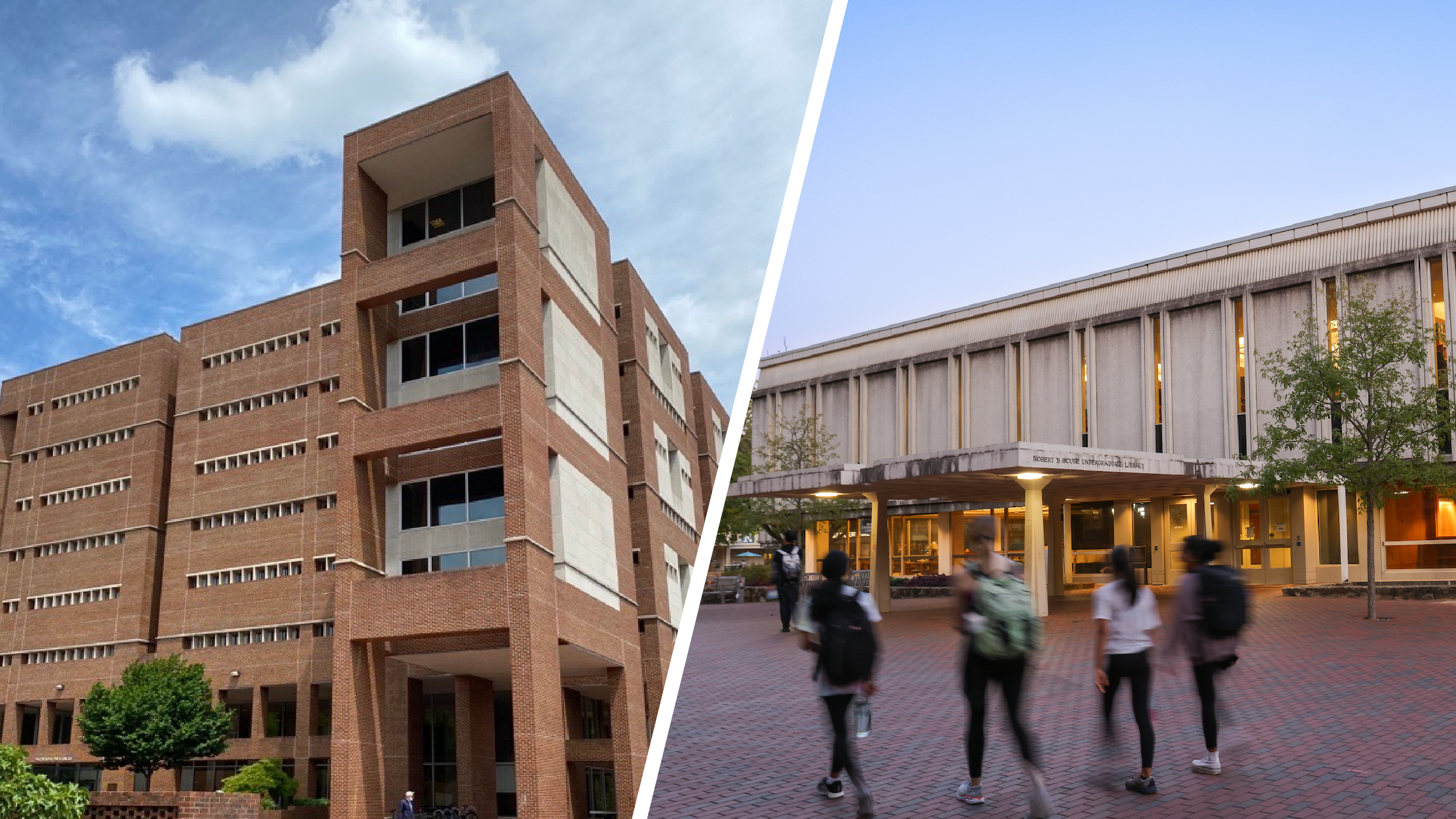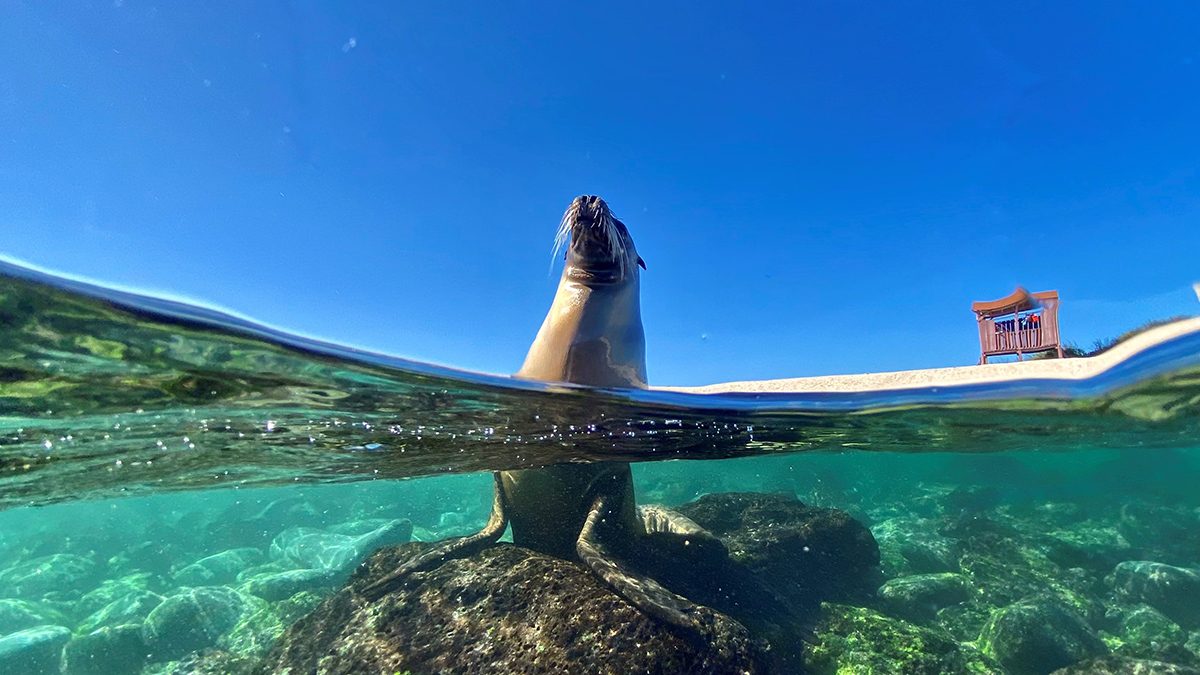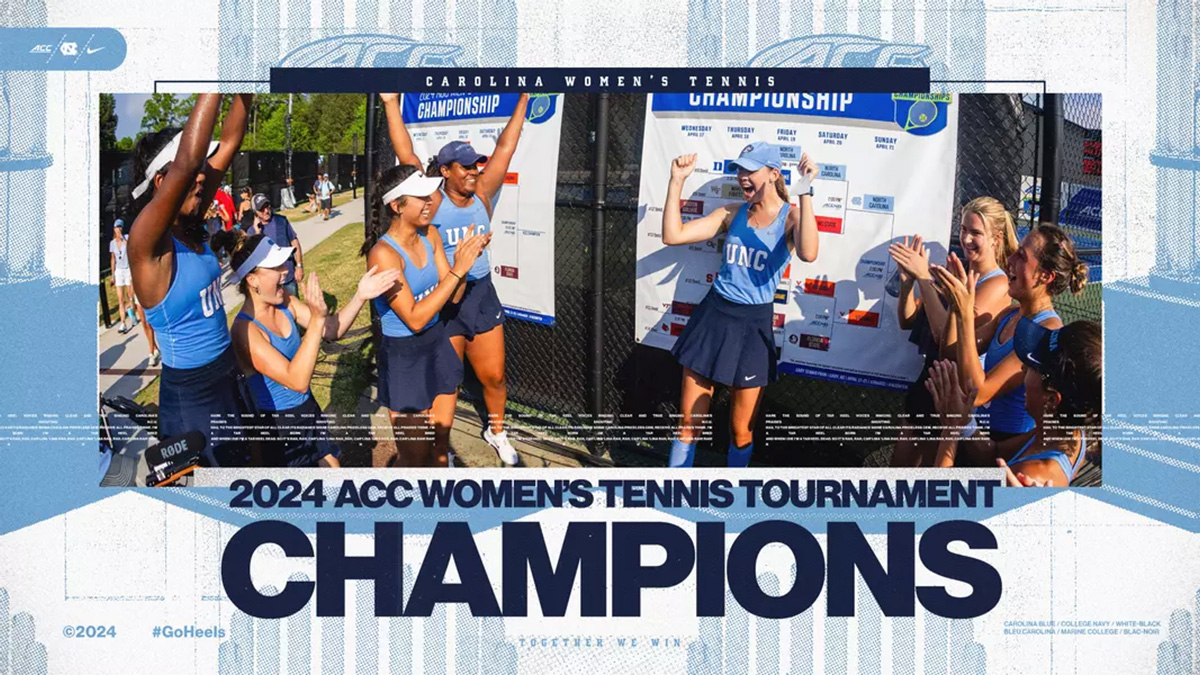Mobile nursing clinics serve N.C. communities
In counties near UNC-Chapel Hill, students learn public health nursing and help people move toward health equity.
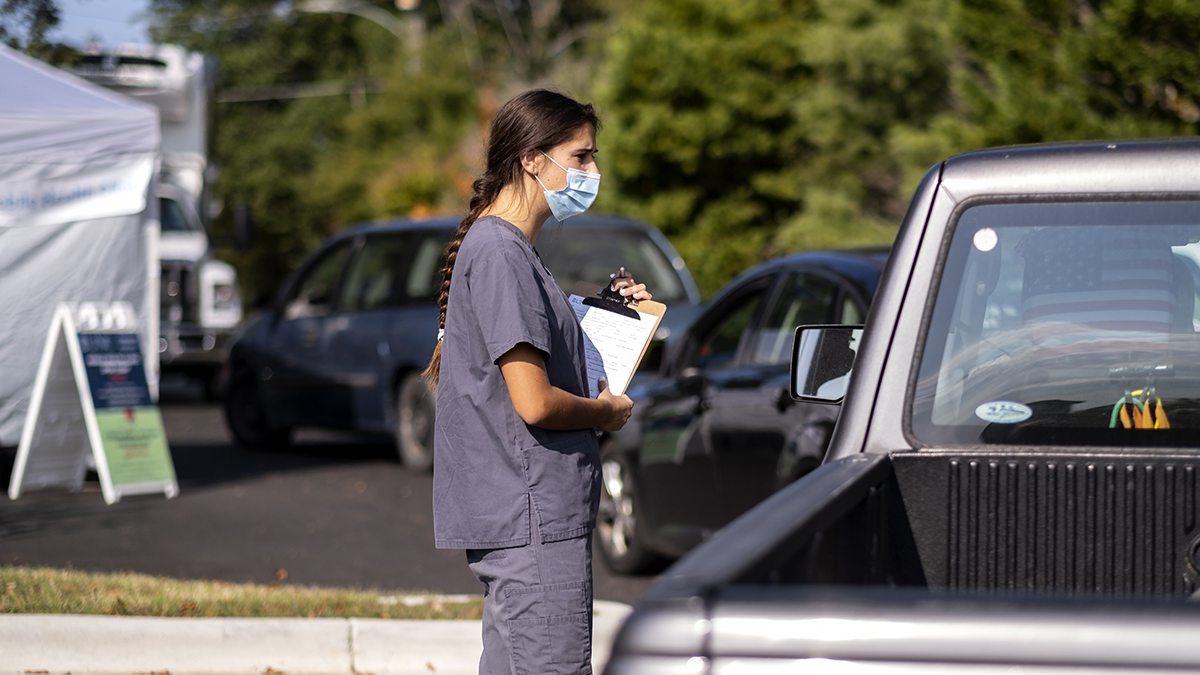
It’s 9:33 a.m. on a chilly October Monday, and a line of vehicles snakes through a parking lot, waiting for Pittsboro’s CORA Food Pantry to open at 10 a.m.
Nearby, four UNC School of Nursing students and Associate Professor Jean Davison are putting up a tent and unpacking supplies for a mobile health clinic. The parking lot is one of the school’s three mobile clinic sites at which students ask people if they will complete an anonymous health assessment form that might indicate a health problem such depression or diabetes.
The other clinics are held at the UNC Farm at Penny Lane in Chatham County and in Wake County at Dorcas Ministries. Fourteen undergraduate students rotate through the Chatham County clinics. Sixteen more students rotate through the Wake County clinic.
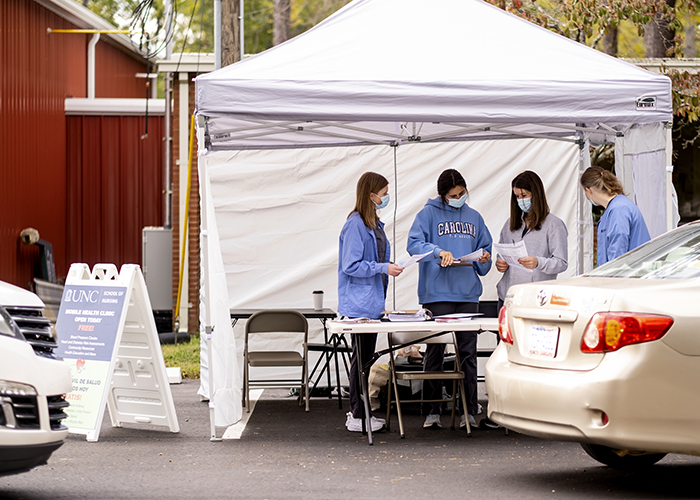
Students Peyton Gully, Emma Kruger, Moriah Fender and Tara Horoho (left to right) get organized for a UNC School of Nursing mobile nursing unit as cars line up at the CORA Food Pantry. (Jon Gardiner/UNC-Chapel Hill)
“We invite people, once they’ve picked up food, to come to our booth under the canopy for free checks on blood pressure and glucose and other health screenings,” Davison says. “Students will screen anybody in the car line who is willing to complete a form. If the person’s information indicates anything abnormal, we’ll ask if they’d like to be examined in a more private place aboard Miss Penny.”
“Miss Penny” sits at the parking lot’s edge. She’s a 35-foot-long recreational vehicle sporting a colorful vinyl wrap on both sides emblazoned with “Wellness on Wheels” and photos of six young people of different genders and races, along with fun art of vegetables, chickens and two dogs. It would look at home at any state fair.
During a typical three-hour clinic, seven-to-ten people will consent for an exam aboard Miss Penny.
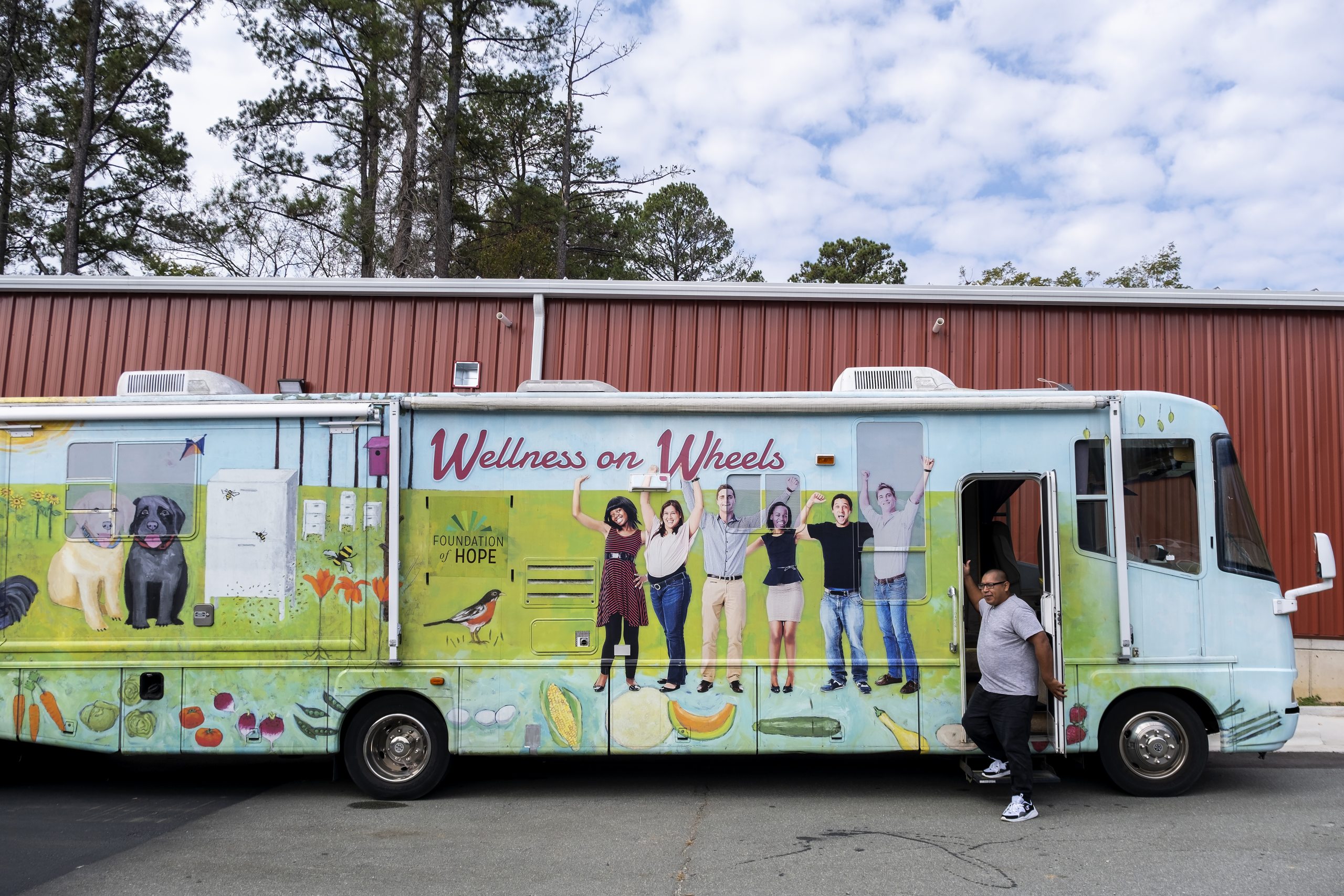
Delfino Benitez steps out of of the Wellness On Wheels RV “Miss Penny.” Benitez, a sophomore majoring in African, African American and diaspora studies, is Miss Penny’s driver and serves as a Spanish language translator at mobile clinics. (Jon Gardiner/UNC-Chapel Hill)
Getting started
The students finish tent set-up after getting advice on a stuck pole from a farmer in dusty denim who just unloaded produce from his pickup truck for the food pantry.
Davison huddles with the four — Moriah Fender, Peyton Gully, Emma Kruger, Tara Horoho — and reviews forms in English and Spanish. Just before 10 a.m., the students attach a banner that reads “UNC School of Nursing Mobile Health Clinic” to the tent. They laugh as Gully, on tiptoe, is just able to pin up the left side.
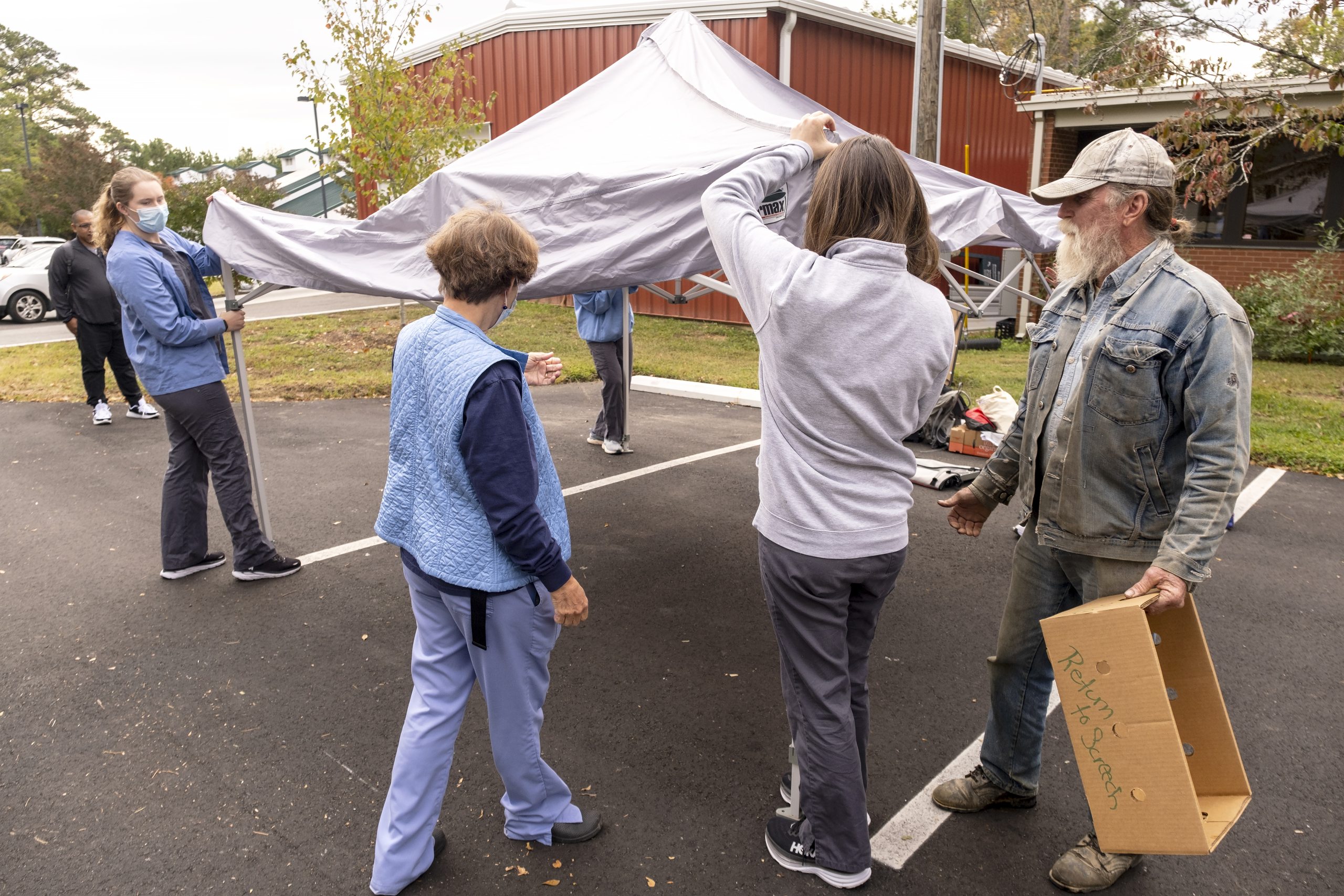
With help from a local farmer, four nursing students and Associate Professor Jean Davison raise a tent under which students can perform health assessments that might indicate a health problem such depression or diabetes. (Jon Gardiner/UNC-Chapel Hill)
When the cars start coming by, the students move through the line with Chick-fil-A cheerfulness and efficiency. “Hi, there,” Kruger says, greeting a driver. “How are you doing? We’re offering free screenings for blood pressure and blood sugar. Would you be interested?”
Soon, one driver agrees to let the students takes vital signs and body measurements. Another’s form indicates he needs a more in-depth exam on Miss Penny, which Davison handles.
When a Spanish-speaking driver needs language help, sophomore Delfino Benitez steps in to translate. Benitez, majoring in African, African American and diaspora studies, is also Miss Penny’s driver.
What the students learn
Students come to the clinic as part of the school’s courses such as “Public Health Nursing in Community Settings” or “Experiential Learning in Nursing.”
“We’ve learned a lot about what it means to be a nurse in the community, not just a nurse in the hospital,” says Fender, a senior from Asheville. “It’s really cool for them not to have to come to us in the hospital when they need care, but instead it’s us helping people in the community be proactive with their health needs.”
Davison says that students learn to conduct a public health community assessment, which includes seeing how social determinants of health such as housing insecurity, transportation problems and lack of health insurance affect a person’s health and well-being. “For example, we partner with food pantries, where individuals with food insecurity seek assistance, and they may have health conditions that need attention, so we’re screening for those social determinants,” she says.
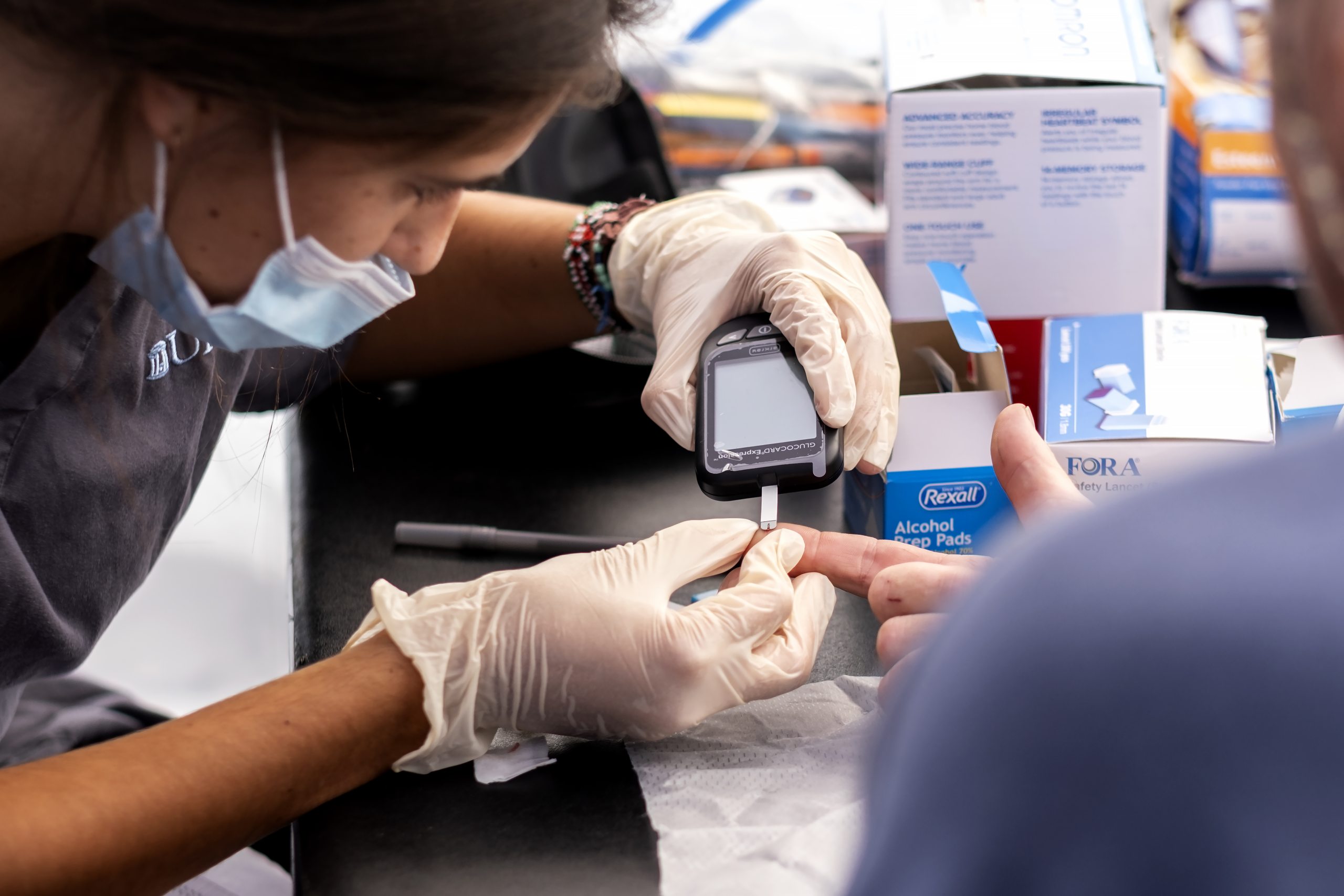
Emma Kruger performs a wellness checkup during a mobile health clinic. (Jon Gardiner/UNC-Chapel Hill)
The clinics provide access to health care that some people may not otherwise be able to obtain. The students tell people about chronic disease self-management support classes in the “Looking Up” program. Students help teach classes on nutrition, exercise and management of weight, stress and medication. “By focusing on not just the blood pressure and blood sugar of community members but also including improved access to healthy foods and meeting other social needs, we help remove some barriers they have to health equity,” Davison says.
Davison secured a Blue Cross Blue Shield grant to support the clinics’ work to address food insecurity and to perform risk assessments of community members. They also have conducted retinal screenings to prevent blindness. A North Carolina Area Health Education Centers grant funds the Chatham County clinic.
The clinics, Davison says, address the need for health equity as described a 2021 National Academies of Sciences, Engineering and Medicine report on the future of nursing:
“A nation cannot fully thrive until everyone — no matter who they are, where they live or how much money they make — can live their healthiest possible life, and helping people live their healthiest life is and has always been the essential role of nurses. Nurses have a critical role to play in achieving the goal of health equity, but they need robust education, supportive work environments and autonomy.”
